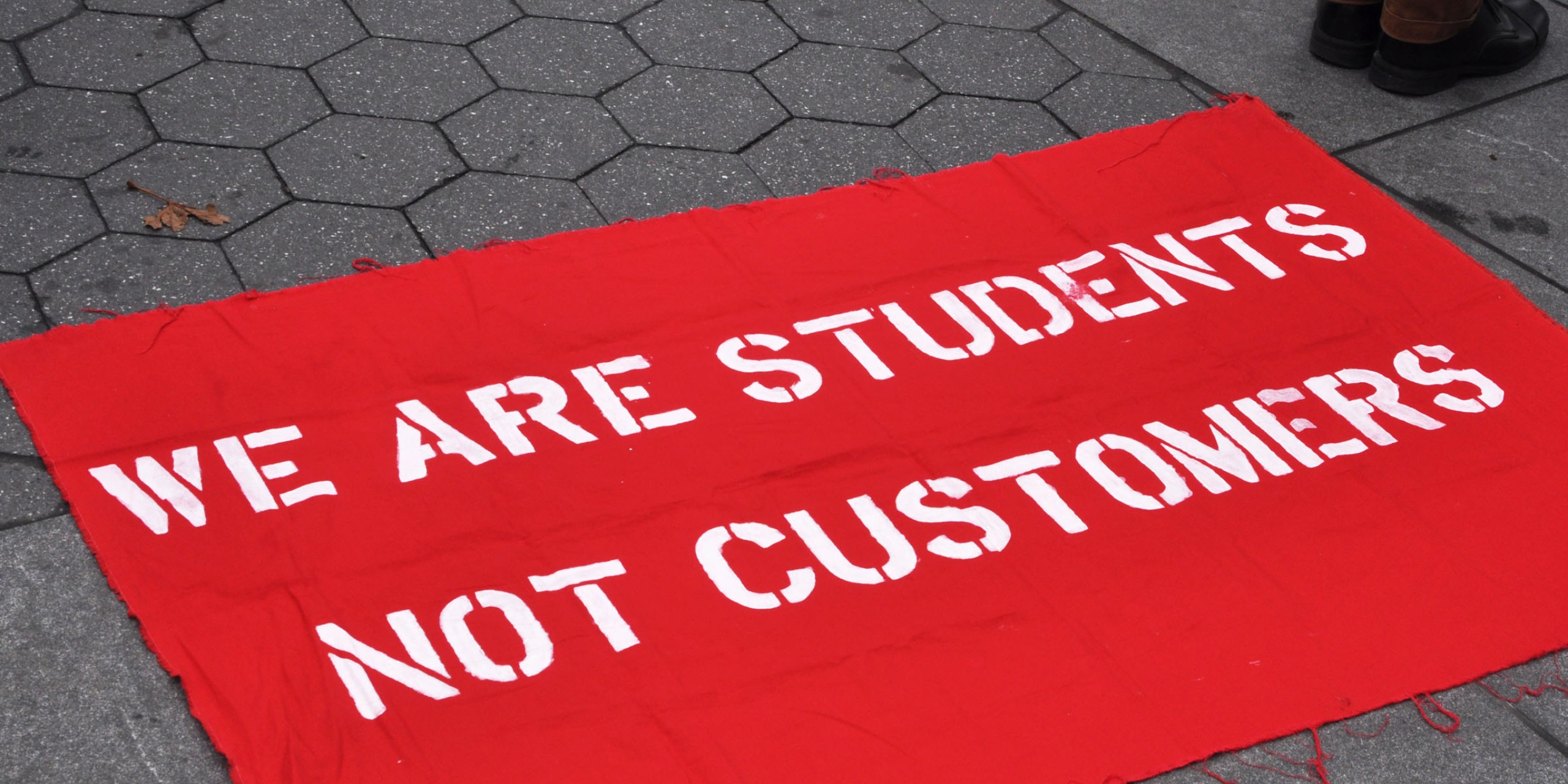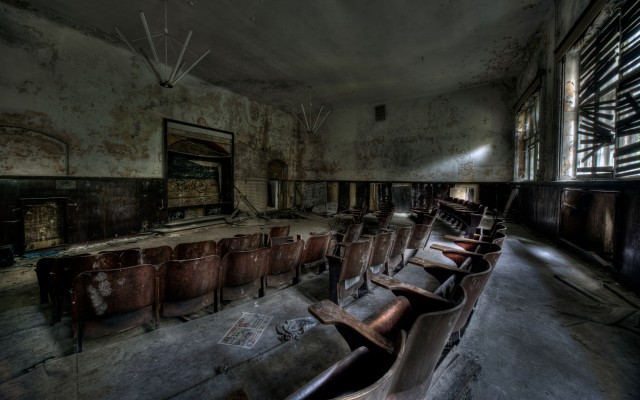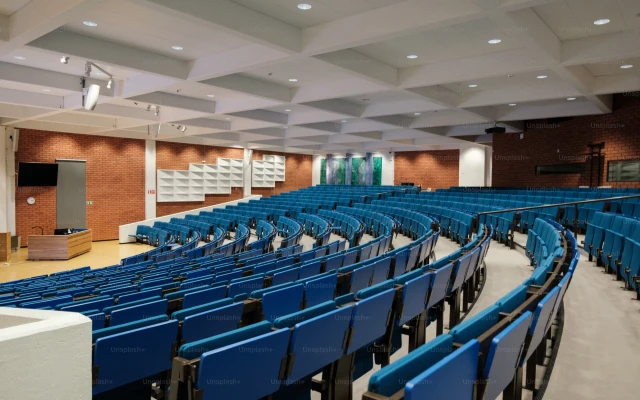
Why Neoliberals Destroy Universities
Published on: July 30th, 2025
Read time: 10 mins
Across the Anglophone world, a war on higher education is being waged. In the United States, the second Trump administration is targeting universities with unprecedented zeal, part of its twin campaigns to bring the administrative state to heel and set progressive causes back decades.
In the United Kingdom, the university sector is on the brink of a fiscal abyss, one which was carved out by successive financing reforms that made the sector wholly reliable on student fees and, in the process, made it highly vulnerable to exogenous shocks.
Crucially, in both contexts neoliberal activists have been driving the assault. In North America, the campaign to dismantle higher education takes much of its inspiration from the unhinged scribblings of a gaggle of neoliberal think-tank fellows. None have been more prominent than Christopher Rufo, who has mounted assault after assault on the nation’s universities for years. Rufo is a product of the neoliberal think-tank circuit. A former fellow of the Heritage Foundation and the Claremont Institute, both prominent players in the world of free-market institutes, Rufo currently works at the Manhattan Institute, an Antony Fisher-founded free-market think tank in New York City, where he writes regularly on how to bring the nation's universities to heel.
In the UK, the student fees and loans system that is the root cause of the sector’s enduring fiscal crisis was designed and implemented by neoliberal activists affiliated to neoliberal think tanks like the Institute of Economic Affairs (IEA, Antony Fisher’s first) and the Centre for Policy Studies (CPS). If the original theory behind a loan-financed university system came from a 1955 essay by prominent early neoliberal Milton Friedman, it was IEA and CPS neoliberals like Arthur Seldon, Alan Prest, and Alan Peacock who, for almost half a century, kept the idea alive and unceasingly campaigned for its implementation. Though its rollout was slow, the fees and loans system that was eventually established very closely resembles Friedman’s original vision.
While these national and historical contexts are different, and while individual ideologues like Rufo or Seldon need to be analysed in their specificity, it’s important to take a step back and look at the broader picture. Why do neoliberal think-tank activists organise to dismantle universities? What is it about higher education that attracts their ire? And, conversely, what is it about neoliberalism that fans hostility to academia?
Neoliberalism and the Universities
Neoliberal ideology is typically associated with the world of free-market think tanks. As is well known today, institutes like Heritage, the IEA, and the CPS were historically key to the neoliberals’ hegemonic project. They served as para-academic spaces that not only nurtured the development of neoliberal ideas but also facilitated their publication and dissemination. I've written about the neoliberal politics of knowledge elsewhere.
But how exactly did the neoliberal knowledge ecosystem relate to universities? Here things get more complicated. While neoliberal think tanks were overwhelmingly para-academic, which they had to be in order to maintain their intellectual and financial independence, they derived much of their personnel and intellectual cachet from university connections. To ensure the credibility of their publications and arguments, their authors tended to be credentialed academics and they maintained carefully curated academic advisory boards. Some of the institutions neoliberals founded were themselves (private) universities, including the University of Buckingham in London and Francisco Marroquín University in Guatemala. (The comparatively young University of Austin, co-founded by contemporary neoliberal Niall Ferguson, sits in this tradition, too.)
In more general terms, it can’t be denied that neoliberalism’s intellectual history passes through several key universities. The neoliberal project wouldn’t have been what it is without the Graduate Institute of International and Development Studies in Geneva, the London School of Economics, or the universities of Vienna, Freiburg, Chicago, or Virginia, to name but a few. Even so, many in the neoliberal movement felt ill at ease in these institutions. Especially in the early days, neoliberalism was a pariah ideology that enjoyed little academic esteem. The neoliberals were not widely read in scholarly circles, had little purchase on policymaking, and not infrequently struggled to get their writings accepted for publication by prestigious academic periodicals or university presses.
This is a key reason the neoliberals set out to construct their own para-academic ecosystem. But it also had two further implications for neoliberalism. On the one hand, it infused the movement with a distinct affective structure. Confined to the margins of intellectual life, they viewed themselves as iconoclasts, intellectual outsiders bravely doing battle with an ossified and entrenched orthodoxy. This was less a neutral self-conception than an object of deep emotional and affective attachment. Although they desired more influence, they also, perhaps paradoxically, drew meaning from their own heterodoxy: It gave the movement a sense of purpose, urgency, and solidarity.
On the other hand, however, their persistent failure to gain a foothold in academic circles posed them with a profound philosophical problem. Barring a handful of exceptions (like Louis Rougier), neoliberals were not relativists. Most of them firmly believed in the truth of their philosophy. They thought that the free-market order is objectively the best system of economy and considered competing models, such as socialism, Keynesian liberalism, and fascism, not just less efficient or intellectually misguided but, plainly, scientifically false.
A Theory of Academic Exclusion
But if their ideas were grounded in fact, supported by reason, and objectively accurate, what could account for their continued marginalisation in academia? It couldn’t be that their philosophy had simply failed to thrive in the free marketplace of ideas due to some logical or analytical flaw internal to it. Because their worldview had truth on its side, the explanation had to be that no such marketplace existed or, at the least, that it wasn’t functioning properly. If their ideas had failed to impact academia, this indicated not that they were somehow mistaken but that they were being actively excluded, gatekept, suppressed.
This was not just a grievance harboured by the odd neoliberal: It was a topic they formally and systematically theorised. Friedrich Hayek’s early work on social change, for example, drew heavily on Julien Benda’s La trahison des clercs (the treason of the intellectuals) to argue that Western societies had been betrayed by the intellectual class, which had become enamoured with socialist ideals and jettisoned liberalism. Around the same time, Peter Bauer, the doyen of neoliberal development theory, argued that the field of development economics had been corrupted by a clique of progressives who actively silenced opposing viewpoints by gatekeeping academic journals and presses. This way it had arrived at a ‘development orthodoxy’, the rejection of which by individual dissenters, like himself, meant career suicide. (Far from harming his career, Bauer's views earned him first a professorship at the LSE and then a life peerage.)
Arguably the most influential intervention, however, came from the Virginia School neoliberals. In the late 1960s Gordon Tullock, one of the fathers of public choice theory, came to investigate the social organisation of science. Marshalling the concepts he and James M. Buchanan had developed some years earlier in The Calculus of Consent, Tullock argued that much like public servants, scientists were motivated less by an intrinsic will to truth than by the prospect of private gain. Whenever science is socially organised such that deceit is incentivised, many scientists will twist the truth or even lie to further their careers. This is especially true when science and research are publicly funded, as this incentivises the researcher to downplay or even falsify any findings that are inconvenient to those in power, lest they have their funding withdrawn. In Tullock’s estimation, these problems were especially rife in the social sciences, where the professional cost of criticising established orthodoxies was high. This meant that the social sciences suffered from high levels of conformity, groupthink, and even the deliberate falsification of findings.
By the mid-1960s, then, the neoliberal movement had developed a formal theory with which to explain its own lack of academic impact: It was not their philosophy that was to blame but the scientific community. This notion was quickly absorbed into the neoliberal movement, seamlessly meshing with its self-conception as an iconoclastic outsider and its deep affective attachment to its own heterodoxy.
It's easy to see, though, how such a theory could devolve into science denialism. Though it masquerades as a critique of governmental overreach, in truth public choice theory is often conspiratorially organised. It accuses public officials of systematically placing their private interests above the public good, thus effectively conflating public service with corruption. When applied to science, public choice theory comes to suggest that any scientific inquiry which disagrees with neoliberal principles must be false, disingenuous, or both. And in this worldview, universities come to appear less as sites of knowledge production than so many little bastions of rent-seeking careerists.
Why Do Neoliberals Destroy Universities?
All of the above goes a long way towards explaining why so many neoliberals have wanted to dismantle universities. Within the world of neoliberal ideology, universities were led astray by intellectually dishonest cliques intent on gatekeeping their disciplines and maintaining access to public funding.
In their eyes, the solution to this problem was to cut public funding to universities by privatising their income streams. By making students pay fees, set at market rates, universities would be forced to compete for ‘consumers,’ thus subjecting them to market discipline. This would cut the sector’s administrative bloat and rid it of progressives, who would no longer be shielded from intellectual scrutiny by a lack of free competition. It would also shrink the sector to whichever size the market would bear, which they expected would be significantly smaller than it traditionally has been.
This, in any event, is why many neoliberals have wanted to reshape higher education. An altogether different matter, however, is why neoliberal reason needs to attack the sector, especially today. Here key is that after more than four decades of being the predominant philosophy of government, neoliberal ideology appears to have lost most of its hegemonic appeal. As its crises multiply and its contradictions deepen, its philosophical bankruptcy is becoming plain as day to all but the most stubborn partisans.
In this context, the assault on universities, frequently led by neoliberal think tanks, should perhaps be seen as the survival response of an intellectually exhausted ideology. Since universities are where alternative ideas may reasonably be expected to emerge, they pose a clear threat to what remains of neoliberalism’s hegemony. It’s partly by beleaguering the university sector that this dying ideology hopes to prevent the new from being born.
There is a glaring irony here. By targeting universities, today’s neoliberals are committing the exact crime their predecessors always accused their adversaries of perpetrating: Dismantling intellectual freedom in a bid to defer their own ideological demise.
See also...
Feature image by Michael Fleshman (CC BY-SA 2.0).
Bulletin posts represent the views of the author(s) and not those of the ISRF.
Unless stated otherwise, all posts are licensed under a Creative Commons license (CC BY-ND 4.0).


